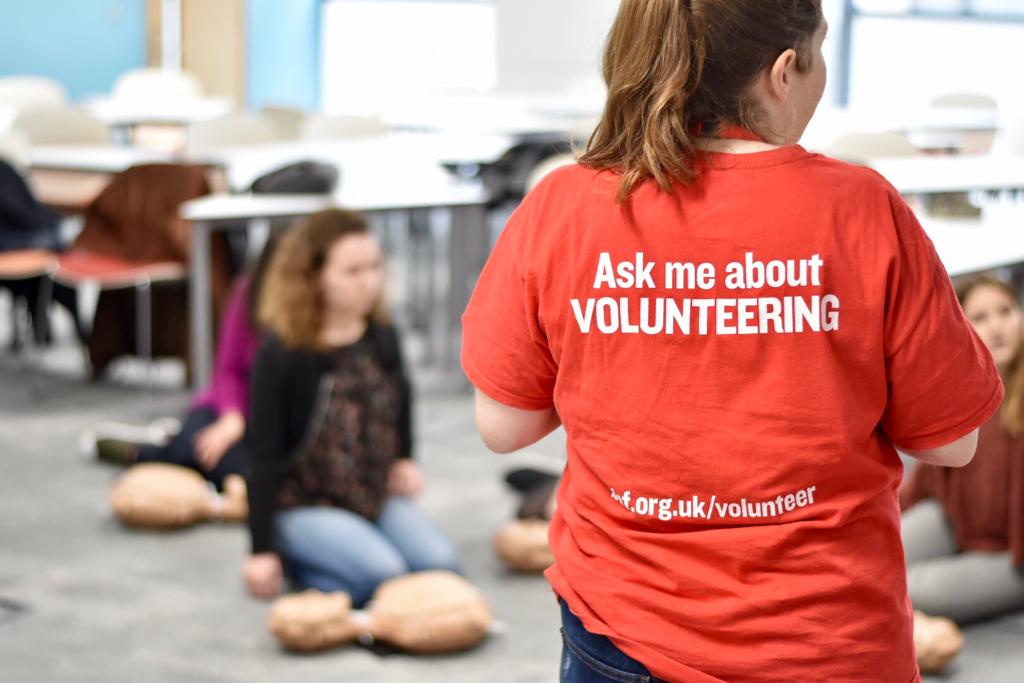We’ve just released the results of our annual student volunteering survey focusing on the 2022-23 academic year. With 1839 students responding, our annual survey allows us to better understand the intersection of volunteering and student life at LSE. We use this information to design strategic communications, partnerships, and programming to best serve the student body and live our goal of inspiring and empowering the LSE community to volunteer.
So, what did we learn? What can we do better?
- Over half of LSE student volunteers do their volunteering year round
Over half (56%) of LSE student volunteers who answered our survey do their volunteering year-round, meaning that they participate in volunteering projects that are long-term and likely consistent commitments. Additionally, the next highest number of students volunteer during term time only (34%), meaning that many LSE volunteers are able to find time for their volunteering around their studies. This information is significant for both the Volunteer Centre and our charity partners, as we work together to best understand what kind of volunteering opportunities best resonate with the LSE student body.

- As per usual, the biggest motivation for students to volunteer is altruism and their personal values
This is no surprise to the Volunteer Centre, as altruism has consistently been the biggest motivator to volunteer for LSE students in past annual surveys. Specifically, LSE volunteers name “improving things” as their number one motivator, followed by “my personal values” and “giving back to society.”
These motivations are likely linked to the sentiment that volunteering makes you feel good and increases efficacy. Young people now more than ever are getting involved in their communities to make local, if not greater, change in society. Alongside this, students are the least motivated to volunteer for “the chance to gain an award, certificate, or accreditation.” Together with our charity partners, we can best advertise and promote volunteering to better engage with students by appealing to altruistic motivations.

- The biggest barrier, according to our survey, is that students don’t have enough time to volunteer due to the pressures of study. Similarly, they also lack time due to paid work and involvement in other societies, sports, and activities
It is no secret that LSE students are busy, but it is important to note that their busy-ness isn’t just with their studies. With a cost-of-living crisis, more students need to get jobs to live in London and attend higher education. Furthermore, many students are involved in LSE societies, sports clubs, and other extracurriculars. While the Volunteer Centre can directly remove some of these time impediments, we can enact changes in our methods of communication, so it is easy for students to find volunteering opportunities. We can also continue discussions with charity partners about having flexible time commitments so that students can feel confident in balance their studies and volunteering.

- Almost all LSE student volunteers feel their communication skills, ability to work within a team, and willingness to try new things increased with volunteering
Finally, we found volunteering correlated with an increase in important skills for students having to do with communication, teamwork and leadership skills. This data provides fantastic evidence that volunteering provides many different experiences outside of being a line on a CV, but rather a real-world opportunity to develop new skills. However, out of the options provided, student volunteers felt that their knowledge of their degree subject increased the least. We believe that volunteering can provide a safe and low-stakes environment for students to apply the knowledge that they learn inside of the classroom, outside. The Volunteer Centre has responded to this growing sentiment by implementing programmes, including our new programme, the Research Volunteering Scheme, which serves to connect charities with the latest academic research via the LSE student body. Our goal is to continue to foster this connection between volunteering and degree subject knowledge, so that students have access to high impact volunteering opportunities and use their knowledge to change the world. As the RVS launched during the 2023-2024 school year, it will be interesting for us to see if this statistic changes next year.

So what does this mean?
Through our annual survey, the Volunteer Centre can celebrate our successes but also hold ourselves accountable to best serve the LSE community. We are increasingly aware of the accessibility barriers to volunteering and will be committed to eradicating systemic hurdles when we can; you can expect more on this on our blog in the coming weeks!
We are incredibly proud of LSE students and their commitment to changing the world through volunteering. They are exceptionally motivated and dedicated—we see this in many different spaces from one-off volunteering opportunities to Student-Led projects! This survey allows us a deeper understanding into the many reasons why they volunteer—as well as why they might not—all of which are valid. We welcome any additional feedback or ideas from LSE students (volunteer@lse.ac.uk).
And last but not least, a huge ‘thank you’ to our charity partners who make this volunteering possible! It is a delight to collaborate with such a wide breadth of passions and causes. If you’d like to join our volunteering network, please email us (volunteer@lse.ac.uk) for more information.





